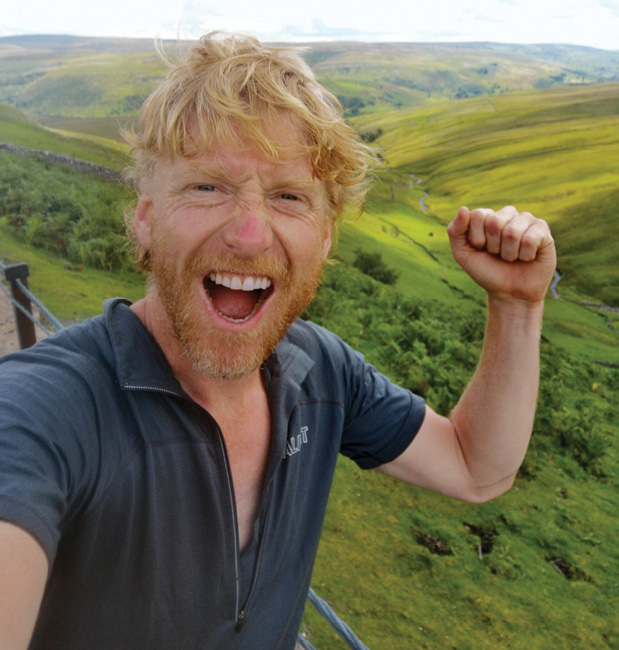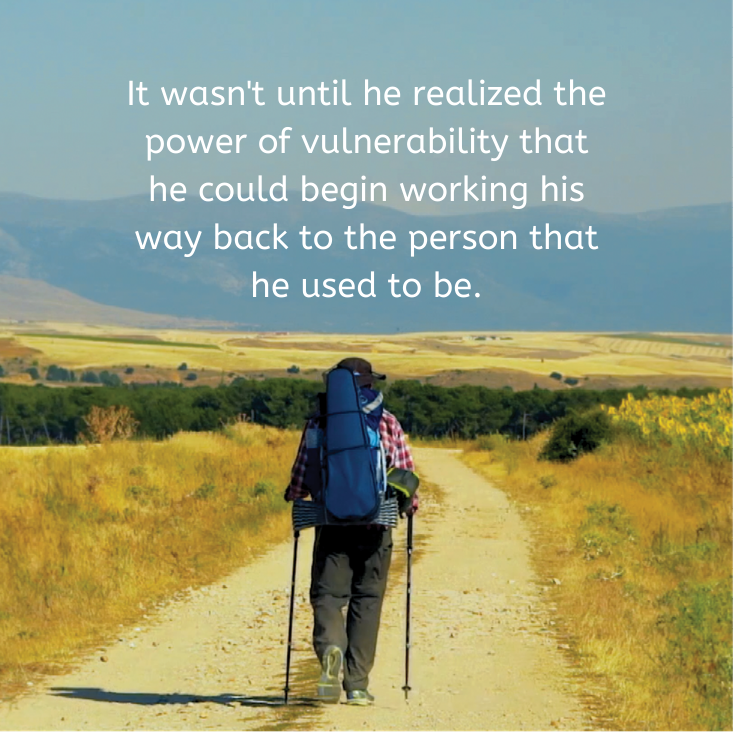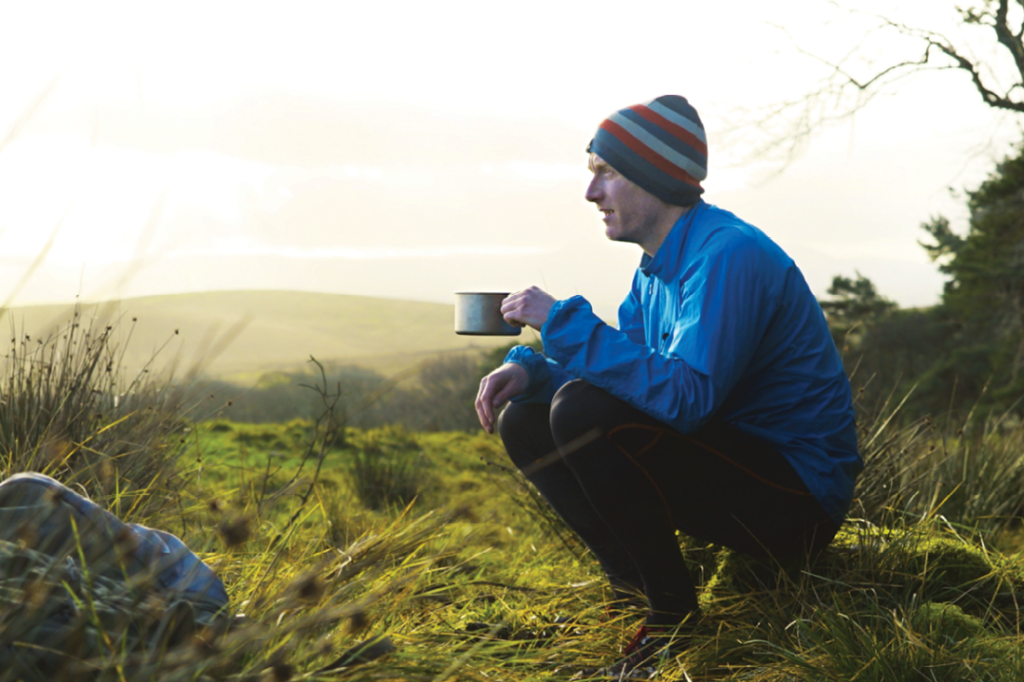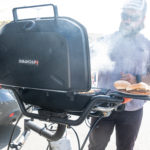Once named National Geographic Explorer of the Year, Alastair Humphreys has never been a stranger to feats of daring. But for his latest challenge, he took on something much more daunting, albeit entirely more relatable for the average person: his midlife crisis.
Humphreys, an Englishman, has ridden his bike all the way around the world. He has rowed across the Atlantic Ocean and trekked 1,000 miles through the Empty Quarter desert of the Arabian Peninsula. The “microadventuring” movement he started inspired others to do things “small and achievable” but still wild enough to shift their perspectives—things as simple as swimming in an untamed stretch of a river or to “pitch a tent in nearby woods, explore their city by moonlight, or hold a family slumber party in the backyard.”
But that was then and this was now. It was 2016. Nearing 40 with a wife and two young children, Humphreys felt the familiar tug of adventure while riding the train. In earlier years he had lived as adventurously as anyone in the world, but he still felt like a fraud, stuck at home being a “normal” dad most of the time. Humphreys was afraid to let the outside world know that he wasn’t always the explorer he appeared to be. Sometimes, actually most of the time, he was just a guy changing diapers or packing lunches.
“You see your hero on the internet and you assume that person’s got their life figured out,” Humphreys says. “And I’m guilty of that myself. I’m often putting a better version of myself out into the world in my books and online.”
But the veil we put up to the world doesn’t halt the internal monologue or the feelings of inadequacy. Continually, Humphreys’ mind would wander back toward one of the books that inspired him to become the adventurer he did.
And so, beginning from the western coast of Spain, he started walking.
One Midsummer Morning
His trip, planned from the coast to Madrid, in the center of the country, would covered hundreds of miles—a long way to walk, for certain, and an even longer way to go without the benefit of sleeping indoors.
It was modeled on the same venture by British author Laurie Lee, who busked his way across Spain in the 1930s and wrote about it in his book As I Walked Out One Midsummer Morning.
Humphreys first read Lee’s book at the age of 22, when his life of adventure was beginning. To pay his way across Spain in the same fashion as Lee, Humphreys only had his violin. He busked for money in town squares across the Iberian Peninsula. The main difference between Lee and Humphreys is that Lee was an experienced and talented violinist. Humphreys’ only music experience was a brief period playing piano as a kid.
He had practiced for only about seven months with a teacher back in England, but violin is a notoriously difficult instrument to learn, and a novice can’t fake their way through a song or two. Anyone could learn one or two simple pieces on a piano, but the violin is offensive to the ears when played by an unskilled hand.

But an unskilled hand is exactly what Humphreys brought to Spain, and it was the only way he was going to be able to eat each night of his journey. He brought no money or extra food with him, it was sink or swim, play or starve.
The adventure itself was an exercise in walking into the world with open palms. When you stand in a town square, unpack a cheap violin, set up a music stand, and crack into the silence with the high-pitched strains of The Muppet Show theme song, the veil doesn’t work so well. All that’s left is vulnerability.
More than any of his other adventures, Humphreys says this scene strikes fear into the hearts of those who hear him tell the tale. We all have some innate fear of rejection, of opening up ourselves, of saying to the world “Here I am. I know I’m terrible.”
“I found it terrifying,” Humphreys says. “And I think that is far more useful and interesting to unpack than being scared in the middle of the ocean. You’re supposed to be scared in the middle of the ocean…. With those kinds of adventures, you have to just go bigger and riskier like an addict until something disastrous happens. I think there’s more to life.”
Growing Closer
Humphreys details both his physical journey and the inner monologue of embracing vulnerability and the unknown in his latest book, My Midsummer Morning, his tenth. He spends a good portion of it describing different days in villages and towns across Spain.
His strategies for identifying potential donors, his conversations with those who wanted to help him, and his glee at earning a single euro are all entertaining, but it’s the motivation behind the trip that contains the most potential benefit to people in all walks of life.

“If you can just persuade yourself to stand in that plaza and just think to hell with it I’m going to give it a go, and start playing away, suddenly by admitting to the world ‘I am terrible,’ it becomes a great superpower,” says Humphreys. “Rather than trying to pretend that you are more than you actually are, which is a horrible characteristic in people, vulnerability is actually the secret road to strength.”
As he neared Madrid, Humphreys became bolder in his playing, albeit not much more skilled, and made more money. His embrace of vulnerability allowed him to overcome burdens that had been holding him back not only on his adventure, but back home.
The midlife crisis was real. To remedy restlessness, he’d tried to train for an Ironman and planned a trek to the South Pole. He’d been to therapy, but still felt trapped in the domestic box that he had built for himself.
It wasn’t until he realized the power of vulnerability that he could begin working his way back to the person that he used to be. But this time he was a much more mentally and emotionally resilient, not just the physically tough guy who refused to quit when dragging a sled across the desert.
“Playing the violin had meant acknowledging my weaknesses so that I could begin to make strengths of them instead,” he wrote. “If you want to get somewhere you must take a step in the right direction.”
A Final Destination
By the end of his journey to Madrid, Humphreys—one of the world’s greatest adventurers—admitted to having learned something he must have known all along: The worthwhile things in life are difficult.
Even the seemingly mundane things like having a family, getting a promotion, and reaching fitness goals are all difficult, but worth it. Having the proper motivation to spur you on makes all the difference in how you feel at the end.
“The bad times make the endpoint worthwhile. Now I embrace the downtimes and the struggle,” Humphreys says. “If I’m feeling the urge to quit then this must be a worthwhile project, therefore bring on the pain and misery. Time and again I’ve done that and come out the other side glad I didn’t quit. Sadly you can only learn that side of things from experience.”
For a man whose career has been built on destinations and endpoints, he’s learned that the end isn’t satisfying if you don’t appreciate how you got there.
“Doing big adventures is not the route to happiness in life,” Humphreys says. “You think you’ll go do this big thing and when you finish that big thing you’ll be happy and fulfilled and rich and handsome. And when you get to the finish you think, now what? You are right where you were at the beginning. There’s a hazard in thinking that reaching goals will solve your problems.
“The much better approach is to just enjoy the process and the progress.”
This article originally appeared in the January/February 2020 issue of SUCCESS magazine.
Images courtesy of Alastair Humphreys










